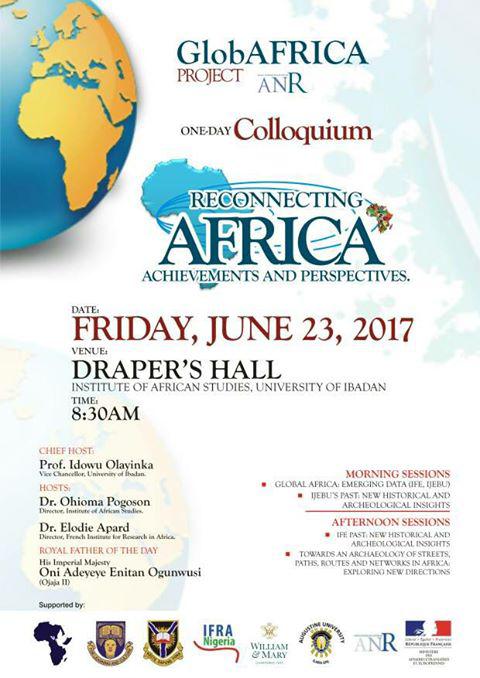Globafrica Workshop “Reconnecting Africa: Achievements and Perspectives”

21st of June 2017
Globafrica is an ambitious historical and archaeological project aiming at rethinking African long-term integration into the rest of the world. It intends to develop novel tools to foster a balanced vision of connections between Africa and other continents before the slave trade and colonialism, in the 18th and 19th centuries respectively. Phenomena such as migratory dynamics, demographic and epidemiological crises as well as increasing social complexity and state or cultural formations, are considered from the angle of intercontinental exchanges. As such, the project pays attention to the relations between oceanic and Saharan interfaces on the one hand, and inland political and social configurations on the other.
On Friday 21st of June, 2017 the annual Globafrica workshop was organised jointly with the French Institute of South Africa (IFAS) in Johannesburg and the Institute of African Studies of the University of Ibadan. This workshop took the form of a one-day Colloquium entitled “Reconnecting Africa: Achievements and Perspectives” and was held in Draper’s Hall, Institute of African Studies, University of Ibadan.
In Nigeria, Globafrica research teams have recently been investigating sites in Ile-Ife, Osun State, southwest Nigeria. They took the opportunity of the Colloquium to present preliminary and conclusive findings. The Colloquium also brought together a number of specialists of west, southeast and east Africa from France and Nigeria. It started at 9am with welcome addresses by Dr. Ohioma Pogoson, Director of the Institute of African Studies and Dr. Elodie Apard, Director of IFRA Nigeria. A series of four panel followed.
The first one was entitled “Globafrica: Emerging data”. It dealt with pieces of evidence of connections of precolonial Africa to the world as illustrated by research currently undertaken in Ile-Ife. Panellists presented an overview of the numerous indications suggesting connexions between Africa and the world and more specific data on the cases of Ile-Ife.
A second panel named “Ijebu’s past: New historical and archaeological insights” delved into the Ijebu Kingdom which arose in the XV century in the Yorubaland. The panel then explored the case of the Sungbo’s Moat, a complex system of ditches and walls built at the end of 1st Millennium (Common Era) in southwest Nigeria.
The next panel entitled “Ife’s past: New historical and archaeological insights” examined in details some of the findings in the Ile-Ife sites. It consisted in the latest survey and excavation results in Ile-Ife disclosed by team members of the Ife-Sungbo site. The team showcased fresh-from-the-field data on objects and excavations in the area.
The last panel “Towards an archaeology of Streets, Paths, Routes and Networks in Africa: exploring new directions” focused more particularly on infrastructures and networks. Evidence pointing at complexes systems of circulations of things and people in southeast, east and west Africa between the 16th of 19th century was disclosed by the panellists
The Colloquium was a real success. Many postgraduate students and academic staff from the Institute of African Studies, the Departments of Archaeology and Anthropology attended the event. We were also pleased to welcome colleagues from the Museum of Natural History, Obafemi Awolowo University, Ile-Ife and the University of Lagos.
Project news is available at the official website (in French).




Social Media
Mailing List